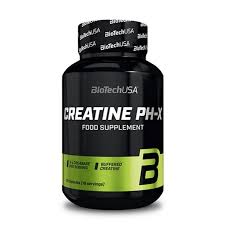Understanding Creatine: Benefits and Importance for Fitness

Introduction to Creatine
Creatine, a compound formed from amino acids, is naturally found in muscle cells and plays a critical role in energy production during high-intensity exercise. As interest in fitness and athletic performance continues to grow, understanding the importance and benefits of creatine supplementation has become increasingly relevant for athletes, bodybuilders, and fitness enthusiasts alike.
The Science Behind Creatine
Creatine works by replenishing adenosine triphosphate (ATP), the primary energy carrier in all cells. It does so by enabling quick bursts of energy production during high-intensity effort, which can enhance strength, improve endurance, and increase muscle mass. Research has shown that creatine supplementation can significantly benefit high-intensity, short-duration exercises such as sprinting, weightlifting, and high-intensity interval training (HIIT).
Current Trends in Creatine Use
In recent years, a systematic review published in the Journal of the International Society of Sports Nutrition confirms the efficacy of creatine in improving overall performance. The review discusses findings from multiple studies showing that athletes who supplement with creatine experience improved physical performance across various sports. Furthermore, the market for creatine supplements has expanded, with products now available in various forms, including powders, capsules, and energy bars.
Benefits Beyond Fitness
While most known for its athletic benefits, creatine is also being studied for its potential neurological benefits. Research indicates it may have protective effects on brain cells, possibly helping in conditions such as Alzheimer’s disease and Parkinson’s disease. This has sparked interest in the use of creatine for cognitive enhancement beyond its traditional use in sports.
Conclusion and Future Implications
As the body of research supporting the benefits of creatine grows, its importance in both athletic performance and potential health applications cannot be underestimated. For fitness enthusiasts looking to improve their performance or increase muscle mass, creatine supplementation presents a scientifically-backed option. However, as with any supplement, it is recommended that individuals consult with healthcare professionals before starting a new regimen. The future of creatine use will likely see continued exploration of its benefits, not just in sport but also in broader health contexts, potentially leading to innovative approaches in preventive health and fitness strategies.









